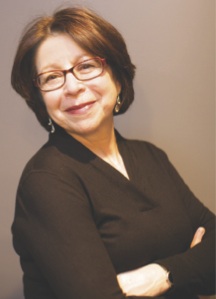
How do we measure change?
 Read Susan Weidman Schneider’s editorial, and so much more, in Lilith’s summer 2013 issue!
Read Susan Weidman Schneider’s editorial, and so much more, in Lilith’s summer 2013 issue!
Maybe you smoked cigarettes a long time ago. Now? Not so likely. Smoking looks retrograde even in an anachronistic setting like TV’s Mad Men. As the smoking seems retro, so too do the sexist attitudes and sexual harassment of that earlier era. Attitudes change, laws then follow suit. (No smoking in theaters or planes, in restaurants or in many public parks.)
And the Supreme Court of the United States has recognized gay marriage, overturning unjust laws that violated the civil rights of same-sex spouses. The rapid change in attitudes about LGBT issues has been remarkable. From the overt opprobrium during the 1980s AIDS epidemic to social and legal acceptance today? Less than 30 years, and a sea change.
Let’s hope that very soon the attitudes toward women in Jewish divorce law will seem at least as retro as smoking, and that legal succor will follow. As with marriage equality in secular law, attitudes have to shift for new interpretations of Jewish law to take hold. June 2013 was quite a month for attempting such change: women by the hundreds wore tallitot and prayed out loud at the Western Wall in Jerusalem; a “summit” discussed radical ways of countering divorce injustice; and whole new category of Jewish female clergy emerged.
So why can’t we cheer for these successes, however modest they may seem to some? Perhaps because we’re a little skeptical. In the wake of an Agunah Summit in late June, we’ve done an in-office retrospective on our previous articles about Jewish women “chained” in their marriages. Under Jewish law, only the husband can instigate divorce proceedings. From this inequity springs the fact that many husbands extort money or child-custody concessions from their wives in exchange for authorizing the divorce. Blu Greenberg, a prime mover behind the summit and a Lilith contributing editor, first wrote about this subject for the magazine in 1976! (Track this coverage at Lilith.org, part of the stunning archive of back issues fully searchable at our new website.) Blu’s oft-cited statement on how to change Jewish law: “Where there’s a rabbinic will, there’s a halakhic way.” Yet four decades of activism have until now yielded little to free a woman powerless to extricate herself from a bad marriage.



